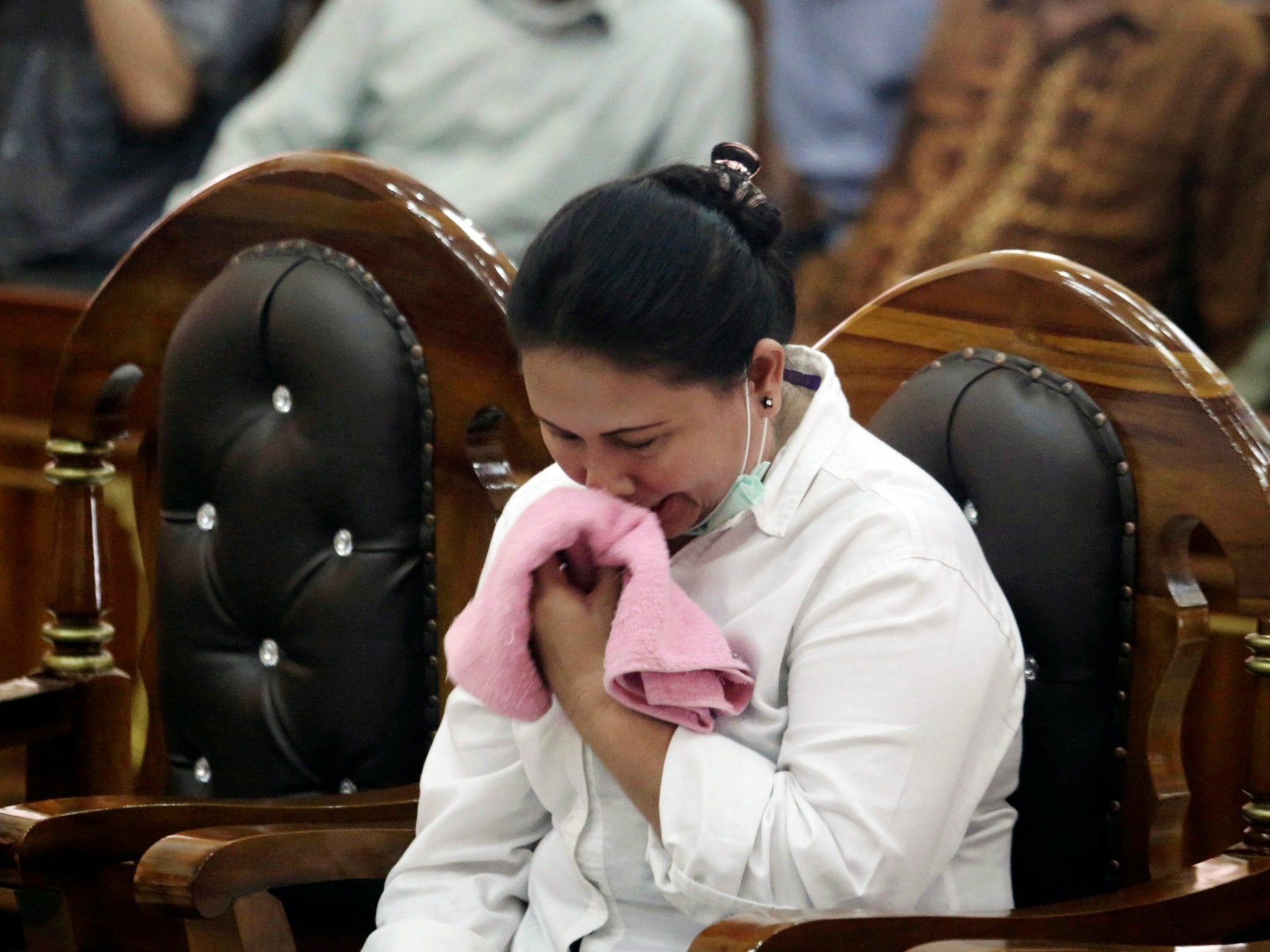Woman who complained about noisy mosque jailed for blasphemy
Prosecutors allege she committed blasphemy against Islam by complaining the Muslim call to prayer was being played too loudly near her home

Your support helps us to tell the story
From reproductive rights to climate change to Big Tech, The Independent is on the ground when the story is developing. Whether it's investigating the financials of Elon Musk's pro-Trump PAC or producing our latest documentary, 'The A Word', which shines a light on the American women fighting for reproductive rights, we know how important it is to parse out the facts from the messaging.
At such a critical moment in US history, we need reporters on the ground. Your donation allows us to keep sending journalists to speak to both sides of the story.
The Independent is trusted by Americans across the entire political spectrum. And unlike many other quality news outlets, we choose not to lock Americans out of our reporting and analysis with paywalls. We believe quality journalism should be available to everyone, paid for by those who can afford it.
Your support makes all the difference.An Indonesian court has sentenced a Buddhist woman to 18 months in prison for blasphemy after she was accused of insulting Islam.
Meiliana, a 44-year-old ethnic Chinese woman, had complained the Muslim call to prayer, which is repeated five times a day, was being played too loudly at the mosque near her house in North Sumatra.
She burst into tears as the presiding judge, Wahyu Prasetyo Wibowo announced her sentence on Tuesday and she was taken from the court in handcuffs.
Prosecutors alleged she had violated the country’s criminal code by committing blasphemy against Islam, the dominant faith in the world’s most populous Muslim nation.
Recent years have seen a rise in conservative and hardline interpretations of Islam, prompting fears the secular nation’s long-standing reputation for tolerance and diversity was being eroded.
“She had said something that insulted religion, in this case Islam,” said Jamaluddin, a spokesman of the Medan district court, adding the defendant had “showed remorse and apologised”.
Political activists have warned the country’s stringent blasphemy laws are being used to bully minorities and violate religious freedoms.
In July 2016, mobs burned and ransacked at least 14 Buddhist temples throughout Tanjung Balai, a port town on Sumatra, following reports of Meiliana’s complaint about a mosque’s noisy loudspeakers.
Her lawyer, Ranto Sibarani, said they would appeal the verdict.
“We will appeal the verdict because the judges could not prove that our client has committed blasphemy,” he told The Jakarta Post.
Responding to the sentencing, Usman Hamid, Amnesty International Indonesia’s executive director, said: “Making a complaint about noise is not a criminal offence. This ludicrous decision is a flagrant violation of freedom of expression.
“Sentencing someone to 18 months in prison for something so trivial is a stark illustration of the increasingly arbitrary and repressive application of the blasphemy law in the country.
“The higher court in North Sumatra must reverse this injustice by quashing Meiliana’s sentence and ensuring her immediate and unconditional release.”
A conservative group, Islamic Community Forum, said Meilana’s sentence was too light. The maximum sentence for blasphemy is five years.
Since 2004, 147 people have been imprisoned under blasphemy or related laws, according to monitoring by Human Rights Watch. The number of cases has slowed since 2014 under the administration of the current president, Joko “Jokowi” Widodo.
Last year, the former ethnic Chinese governor of Jakarta was tried and jailed for blasphemy after several Muslim groups accused him of insulting Islam when he said his political rivals were using the Quran to deceive voters.
The ruling was widely condemned and believed to be politically motivated. Basuki Tjahaja Purnama also lost his re-election bid because of the accusations.
There are hundreds of thousands of mosques across the vast archipelago and most use loudspeakers to play the “azan” or call to prayer, which lasts a few minutes.
But many also play lengthy versions of prayers or sermons lasting over 30 minutes, which has been deemed unnecessary by the Indonesian Mosque Council.
Indonesia’s vice president Jusuf Kalla, who is also a member of the Council, formed a team in 2015 to review mosques’ use of loudspeakers and regulate their use and volume.
He has previously called on mosques to use their public address systems “wisely”.
Join our commenting forum
Join thought-provoking conversations, follow other Independent readers and see their replies
Comments